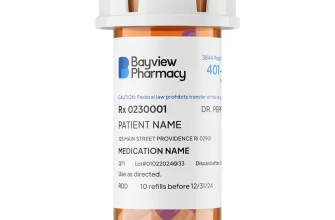Yes, Cialis requires a prescription in the United States and most other countries. This is to ensure your safety and to allow a healthcare professional to assess your suitability for the medication. Ignoring this requirement carries significant health risks.
Obtaining a prescription involves a consultation with a doctor or other licensed healthcare provider. They will review your medical history, assess potential drug interactions, and determine if Cialis is the appropriate treatment for your condition. This consultation is a crucial step in ensuring safe and effective use.
Several telehealth platforms now offer online consultations for prescription medications, including Cialis. These services often provide a convenient alternative to in-person visits, allowing you to discuss your needs and receive a prescription (if appropriate) remotely. Always verify the legitimacy and licensing of any telehealth provider before using their services. Remember to always prioritize your health and seek professional medical advice.
Note: This information is for general knowledge only and does not constitute medical advice. Always consult a healthcare professional before starting any new medication.
- Does Cialis Need a Prescription?
- Cialis: Understanding the Medication and its Uses
- Legal Requirements for Obtaining Cialis in the US
- Obtaining a Prescription
- Legal Penalties for Non-Compliance
- The Risks of Buying Cialis Without a Prescription
- Potential Side Effects of Cialis and the Importance of Medical Oversight
- Understanding the Risks
- Why Medical Oversight Matters
- Medication Interactions
- Alternative Treatments
- Safe Alternatives to Buying Cialis Online Without a Prescription
- The Role of Your Doctor in Determining Cialis Suitability
- Assessing Your Health
- Understanding Dosage and Side Effects
- Follow-up Care
- Finding a Doctor and Getting a Prescription for Cialis
Does Cialis Need a Prescription?
Yes, Cialis requires a prescription in the United States and most other countries. This is because it’s a medication with potential side effects, and a doctor needs to assess your health before prescribing it.
Obtaining a prescription involves a consultation with a physician. They will review your medical history, discuss potential risks and benefits, and determine if Cialis is appropriate for you. This consultation may involve a physical exam and blood tests.
While some online pharmacies advertise Cialis without a prescription, this is illegal and potentially dangerous. These medications may be counterfeit or contain harmful ingredients. Always prioritize your health and safety by obtaining Cialis only through legitimate channels with a valid prescription.
Your doctor can provide guidance on appropriate dosage and potential interactions with other medications you may be taking. They will also monitor your progress and address any concerns you might have.
It’s crucial to be honest and open with your doctor about your medical history and current medications to ensure safe and effective treatment. Never hesitate to ask questions if something is unclear.
Cialis: Understanding the Medication and its Uses
Cialis is a prescription medication used to treat erectile dysfunction (ED) and benign prostatic hyperplasia (BPH). It belongs to a class of drugs called phosphodiesterase-5 (PDE5) inhibitors. Cialis works by increasing blood flow to the penis, making it easier to achieve and maintain an erection. For ED, the recommended starting dose is 10mg, taken as needed, at least 30 minutes before sexual activity.
Important Note: Cialis isn’t a performance enhancer; it only assists men experiencing difficulties achieving or maintaining an erection. It doesn’t increase sexual desire.
Treating BPH: Cialis is also prescribed for BPH, a condition causing an enlarged prostate, leading to urinary symptoms like frequent urination and weak urine stream. The daily dose for BPH is typically 2.5mg or 5mg, taken consistently each day, regardless of sexual activity. This low daily dose helps manage BPH symptoms.
Possible Side Effects: Like other medications, Cialis can have side effects, though not everyone experiences them. Common ones include headache, flushing, nasal congestion, and muscle aches. More serious, though rare, side effects include sudden vision loss or hearing loss. Seek immediate medical attention if these occur.
Interactions: Cialis can interact with other medications, especially nitrates used to treat heart conditions. This combination can cause a dangerous drop in blood pressure. Always inform your doctor about all medications, supplements, and herbal remedies you are taking before starting Cialis.
Before Taking Cialis: Consult your doctor before using Cialis. They will assess your health and determine if it’s the right treatment for you. They will discuss potential risks and benefits, tailoring the dosage to your specific needs.
Dosage and Administration: Your doctor will determine the appropriate dosage based on your individual needs and health condition. Follow their instructions carefully. Never exceed the prescribed dose.
Legal Requirements for Obtaining Cialis in the US
Cialis requires a prescription in the United States. You must obtain this prescription from a licensed healthcare professional, such as a doctor or nurse practitioner, who can assess your medical history and determine if Cialis is appropriate for you. This assessment includes considering potential drug interactions and health conditions that might preclude its use. Failing to obtain a prescription before purchasing or using Cialis is a violation of federal law.
Obtaining a Prescription
To get a prescription, schedule an appointment with your doctor. Be prepared to discuss your medical history, including any existing conditions, medications you are currently taking, and your symptoms. Your doctor will conduct a physical exam and may order additional tests to evaluate your overall health and suitability for Cialis. Telemedicine offers another option; many online platforms allow consultations with licensed physicians who can prescribe Cialis if deemed medically appropriate. Always verify the platform’s legitimacy and the doctor’s licensing before engaging their services. Never buy Cialis from unauthorized online pharmacies or individuals as these are often counterfeit and potentially dangerous. Remember to follow your doctor’s instructions carefully regarding dosage and potential side effects.
Legal Penalties for Non-Compliance
Purchasing or possessing Cialis without a valid prescription carries legal consequences. Penalties can range from fines to criminal charges, depending on the circumstances and state laws. Always prioritize obtaining a legitimate prescription from a licensed healthcare provider to ensure safe and legal use.
The Risks of Buying Cialis Without a Prescription
Don’t risk your health. Buying Cialis without a prescription exposes you to significant dangers. Counterfeit medications are a major concern. These pills may contain incorrect dosages of the active ingredient, or worse, harmful substances. This can lead to severe health problems.
Furthermore, purchasing from unregulated online pharmacies leaves you vulnerable to fraud. You might pay for a product that never arrives, or receive something completely different. Your personal information could also be compromised.
Lack of medical supervision is another critical issue. A doctor assesses your overall health and identifies potential drug interactions before prescribing Cialis. Ignoring this crucial step can cause dangerous side effects, especially if you have underlying health conditions such as heart problems or high blood pressure.
| Risk | Potential Consequence |
|---|---|
| Counterfeit medications | Incorrect dosage, harmful substances, severe health problems |
| Online fraud | Loss of money, no product received, identity theft |
| Lack of medical supervision | Dangerous drug interactions, exacerbated health conditions, serious side effects |
Always consult a doctor before using Cialis. They can determine if it’s the right medication for you and monitor your treatment for safety. Your health is worth it.
Potential Side Effects of Cialis and the Importance of Medical Oversight
Always consult a doctor before using Cialis. While generally safe for many, Cialis can cause side effects. Common ones include headache, flushing, nasal congestion, and indigestion. Less frequent, but potentially serious, side effects include vision changes (blurred vision, sudden vision loss), hearing loss, prolonged erection (priapism), and heart problems.
Understanding the Risks
Priapism, a painful erection lasting more than four hours, requires immediate medical attention. Similarly, sudden vision or hearing changes warrant an immediate call to your doctor. These are rare but serious possibilities. Heart conditions can be exacerbated by Cialis, making prior consultation with a cardiologist crucial for patients with pre-existing cardiovascular issues.
Why Medical Oversight Matters
A doctor can assess your overall health, including any existing conditions, and determine if Cialis is safe for you. They can also monitor you for potential side effects and adjust your treatment plan as needed. This personalized approach minimizes risks and ensures your safety.
Medication Interactions
Important: Cialis can interact negatively with other medications, particularly nitrates used to treat angina. Combining them can cause a dangerous drop in blood pressure. Your doctor will review your current medications to identify any potential interactions and ensure safe usage.
Alternative Treatments
Note: If you experience side effects or Cialis isn’t suitable, your doctor can discuss alternative treatments for erectile dysfunction. Options exist, and finding the right approach for you is paramount.
Safe Alternatives to Buying Cialis Online Without a Prescription
Consider consulting a doctor. They can accurately diagnose erectile dysfunction and discuss treatment options, including Cialis, or explore other medications or therapies. This ensures you receive appropriate medical care and avoid potentially harmful counterfeit drugs.
Explore alternative treatments. Lifestyle changes often significantly improve erectile function. Regular exercise, a balanced diet, and stress management techniques are key. Your doctor can guide you on creating a personalized plan.
Research clinically proven supplements. Some supplements, such as L-arginine or zinc, may support erectile health. However, consult your physician before starting any supplement regimen to avoid potential interactions with other medications.
Seek mental health support. Anxiety and depression frequently impact sexual function. Therapy or counseling can address underlying emotional factors contributing to erectile dysfunction. A therapist can provide strategies to manage stress and improve your overall well-being.
Talk to a pharmacist. Pharmacists are trained healthcare professionals who can provide valuable information about over-the-counter medications and supplements that might help. They can also offer guidance on managing potential side effects.
Remember, buying prescription medications online without a prescription is risky. Counterfeit drugs are prevalent and can pose serious health threats. Prioritize your health and safety by choosing a safe and responsible approach.
The Role of Your Doctor in Determining Cialis Suitability
Schedule a consultation. Your doctor will conduct a thorough medical history review, inquiring about pre-existing conditions like heart disease, high blood pressure, or liver/kidney problems. This helps assess potential risks and drug interactions.
Assessing Your Health
- Expect a physical examination. This might include blood pressure and heart rate checks to ensure Cialis is safe for you.
- Discuss current medications. Your doctor needs a complete list of all prescription and over-the-counter drugs, including supplements, to identify potential negative interactions.
- Be open about other health issues. Conditions like eye problems, hearing loss, or blood disorders may influence the suitability of Cialis.
Following this assessment, your doctor will determine the appropriate dosage, if any. They will explain potential side effects and precautions, providing personalized guidance based on your specific health profile.
Understanding Dosage and Side Effects
- Dosage is personalized. The doctor will consider your age, overall health, and the severity of your condition to prescribe the most suitable dose.
- Side effects vary. Common side effects include headache, flushing, nasal congestion, and indigestion. Your doctor will explain these and how to manage them.
- Rare but serious side effects exist. These include sudden vision or hearing loss; prolonged erection (priapism) requiring immediate medical attention; heart attack or stroke. Your doctor will discuss these risks and their rarity.
Your doctor is your best resource for safe and effective use of Cialis. Open communication is key to a positive outcome.
Follow-up Care
- Regular checkups are important. Your doctor may schedule follow-up appointments to monitor your progress and adjust medication as needed.
- Report any problems. Contact your doctor immediately if you experience any unusual or concerning side effects.
Finding a Doctor and Getting a Prescription for Cialis
Schedule an appointment with a healthcare provider – either your primary care physician or a urologist. Many offer telehealth consultations, allowing you to discuss your needs conveniently from home.
Be open and honest during your consultation. Provide a complete medical history, including details about any existing conditions, medications, and allergies. This helps your doctor determine if Cialis is safe and appropriate for you.
- Your doctor will conduct a physical exam and may order blood tests to assess your overall health.
- Discuss your sexual health concerns openly and honestly. This is vital for accurate diagnosis and treatment.
- Ask questions! Clarify any doubts or concerns you have about Cialis or the prescription process.
If your doctor approves Cialis, they’ll write you a prescription. You can then fill it at a local pharmacy or use a mail-order pharmacy for convenience.
- Understand the dosage instructions provided by your doctor. Follow them carefully.
- Be aware of potential side effects. Contact your doctor if you experience any unexpected or concerning symptoms.
- Regular check-ups with your doctor are recommended to monitor your health and treatment effectiveness.
Consider exploring online telehealth platforms that offer convenient consultations with licensed physicians. These platforms often streamline the process and can provide a more discreet option.
Remember, obtaining a prescription for Cialis through a legitimate healthcare provider ensures safe and effective use. Never purchase medication from unreliable sources.










